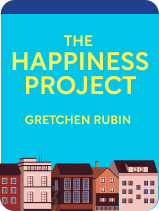

This article is an excerpt from the Shortform book guide to "The Happiness Project" by Gretchen Rubin. Shortform has the world's best summaries and analyses of books you should be reading.
Like this article? Sign up for a free trial here .
Is there a correlation between spirituality and happiness? Is it true that people who practice spirituality tend to enjoy greater life satisfaction?
Research shows a strong positive correlation between spirituality and happiness in that spiritual people—that is, people who spend time considering various spiritual states—are happier with their lives overall. In turn, this elevated happiness grants them better mental and physical health, greater longevity, and an increased ability to deal with stressors.
Keep reading to learn about the relationship between spirituality and happiness.
Spirituality and Happiness
Whether you’re religious or not, it’s important to explore various “spiritual states” to augment your happiness—these states include awe, mindfulness, gratitude, and even reflection on death.
There are two significant ways to cultivate your spiritual happiness: seeking reminders of your good fortune and adopting a spiritual guide.
Seek Out Reminders of Your Good Fortune
Like most people, you may take your everyday life for granted, thinking that nothing can disturb your reality. Unfortunately, major life changes and catastrophe can happen to anyone, at any time. It’s often only in reflecting from the new perspective that catastrophe grants you that you realize just how good your life is, just as it is now. There are three ways to train yourself to be more attuned to the good fortune of your everyday life.
Good Fortune Reminder #1: Examining Reminders of Life’s Fragility
Perhaps paradoxically, thinking about death and catastrophe can contribute to your happiness, as it adjusts your perspective and helps you realize how good your life is now, just as it is.
There are many ways to examine loss and catastrophe. For example, you can read memoirs of those who had experienced terminal illnesses, devastating injuries, addictions, and the death of loved ones. In reading these memoirs, you will find a renewed gratitude for your everyday life, as well as an appreciation of its fragility.
Adopting the practice of contemplating life’s fragility comes with a few key lessons that will help you make the most of your life just as it is.
- First, you’ll learn the importance of simply being present. Take some time to reflect on present moments and realize what you might be taking for granted.
- One way to accomplish this is to try journaling. If you can’t commit to a full journal entry each day, try a one-line journal in which you write down the small things you’re likely to forget, such as a funny habit your child picked up or a nice chat with your mom. Years fly by in the blink of an eye—noting small, joyful moments of the present is a great way to capture and reflect on the “goodness” of your life before it passes by.
- Second, it serves as a reminder to get your affairs in order. This can feel like a morbid and sad task. However, there are a few ways to find happiness in the experience.
- Think of the type of “happiness” you’re creating for your loved ones who won’t have to deal with your logistics in a time of immense stress.
- Choose a day of the year to go over your affairs with your loved ones and frame it as a reflection on “family responsibility.” Use this day to recognize and celebrate that you and your loved ones are still here with you.
Good Fortune Reminder #2: Creating a Gratitude Log
Another way to cultivate an appreciation for your life is to keep a gratitude log. You can start out with the basic process of listing three things each day that you’re grateful for. While making these lists, be sure you’re paying attention to the small, basic things you’re taking for granted or problems that you don’t think about because you don’t have them. For example, you might express gratitude for running water, healthy children, not living in a war zone, never having to do high school over again, and so on.
As you get further into this practice you’ll likely find that you need to adjust your methods to fit your preferences.
- You may find that logging your gratitude less frequently—a few times a week, for example—instead of every day keeps the task from becoming a meaningless burden.
- You may give up your physical log and instead dedicate a specific moment of your day to gratitude reflection—such as while you’re lying in bed, during your morning commute, or over your morning cup of coffee.
Good Fortune Reminder #3: Reframing
At times, you may need to force yourself into a moment of gratitude. When you’re feeling annoyed or overwhelmed by a task, stop yourself and search for a way to express gratitude for the experience. For example, if you’re thinking, “I’m tired and don’t want to cook dinner for the kids tonight,” you might try, “I’m grateful that I have enough food in the house to pull together a meal.”
Adopt a Spiritual Guide
On top of working on teaching yourself to be grateful and present, you can become more disciplined in your happiness journey by finding a “spiritual guide” to look up to. This guide can be anyone who speaks to you—a favorite writer such as Mary Oliver or Thoreau, an artist such as Van Gogh or Monet, a scientific figure like Darwin, or a religious figure like St. Francis.
For example, Rubin chose St. Thérèse de Lisieux, who achieved happiness for herself and others by dedicating herself to perfecting small tasks and appearing as happy as possible. Your guide doesn’t have to have heroic or publicized virtue—they just need to have virtues that you seek to achieve yourself.
Why Does Happiness Need a Guide?
Having a spiritual guide to emulate is important because happiness is hard work, and their guidance can help you stay on track. Reflection on their journeys and how they stuck to their values can help guide you through the common excuses that many people use to remain in the easy state of unhappiness.
- Excuse #1: Happiness isn’t an admirable goal, as it shows a lack of depth. People who believe this think that unhappiness shows that you are pensive and care about “real” issues such as children living in poverty or world hunger. They think that the search for happiness is selfish and useless. However, these people contradict themselves—broken down, their goals are based on giving people the basic health and safety that allows happiness.
- Excuse #2: Happiness suggests naivete or a lack of intellect. While unhappiness is perceived as a source of creativity and deep thought, happiness is often regarded as complacent and unambitious. However, a number of studies have shown that there is no link between happiness and intelligence.
- Excuse #3: Pessimism seems nonchalant and cool. In reality, pessimism isn’t necessarily cool—it’s just an easy stance to default to. On the other hand, enthusiasm takes a great deal of effort and energy, which is far more interesting.
- Excuse #4: Unhappiness allows you to maintain distance between yourself and your choices. Many people use complaints and criticism to keep themselves at arms’ length from things they’re embarrassed to admit their interest in. For example, if you complain endlessly about reality TV stars’ drama, it’s clear that you actually watch reality TV and read gossip magazines.
- Excuse #5: Unhappiness can be used to control and manipulate others. In some cases, you might wield your unhappiness as a weapon, using it to guilt people into what you want them to do. For example, whenever you tell your parents you don’t want to do something, they remind you that they worked opposite shifts for years to support you and your siblings. They remind you of their sacrifice to make you feel guilty and obligated to do whatever they ask.
- Excuse #6: Acknowledging and celebrating happiness is a way to “jinx” it. Some people believe that the expression of gratitude for your good fortune somehow tempts the universe to take it away from you—but all this achieves is a fear of being present and fully appreciating what you have.
- Excuse #7: Worrying prevents bad things from happening. Some people indulge in excessive worrying in an attempt to control what happens to them—but it’s important to recognize that worrying doesn’t change reality. What will happen, will happen, regardless of your anxiety about it. Not only is worrying useless, but it also makes you and the people around you unhappier.
Of course, the excuses people give to bask in unhappiness don’t apply to those who struggle with mental illness, such as depression—that’s a different type of unhappiness outside of conscious choice.

———End of Preview———
Like what you just read? Read the rest of the world's best book summary and analysis of Gretchen Rubin's "The Happiness Project" at Shortform .
Here's what you'll find in our full The Happiness Project summary :
- How to increase the overall happiness in your daily life
- Why changing everything won't bring you happiness
- How to create your own year-long happiness project






